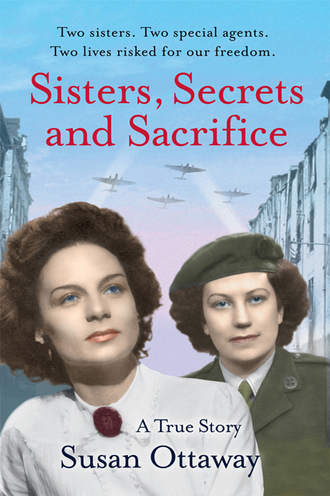Sisters, Secrets and Sacrifice: The True Story of WWII Special Agents Eileen and Jacqueline Nearne

Полная версия
Sisters, Secrets and Sacrifice: The True Story of WWII Special Agents Eileen and Jacqueline Nearne
Язык: Английский
Год издания: 2018
Добавлена:
Настройки чтения
Размер шрифта
Высота строк
Поля
Конец ознакомительного фрагмента
Купить и скачать всю книгу

